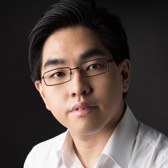I recall when Crouching Tiger, Hidden Dragon (《卧虎藏龙》) came out in 2001, way back in the misty years of my youth. It was the first martial arts movie I had watched since the mid-1990s. I was stunned. It was not what I had expected. It was an elegant reinterpretation of many of the tropes of the wuxia (武侠) genre by a master in his prime. Michelle Yeoh and Chow Yun-Fat delivered performances that were unexpectedly restrained, elegant, and moving.
I was, therefore, excited when I heard that a sequel to Crouching Tiger, Hidden Dragon was in the works.
Alas, the sequel falls short of the original. Like another sequel that shall not be named,1 it replicates many of the same story beats of the original, to its detriment. An ill-fated romance between two young hotheads? Check. An unrequited love between two mature, established martial art masters? Check. An extended scene involving an attempted theft of the Sword of Destiny and lots of martial arts theatrics? Check. A restaurant fight scene with lots of tables, chairs, and various other items of furniture being destroyed? Check.
In one of the most apt quotes from the sequel, Michelle Yeoh’s character, Yu Shu Lien, muses that a scholar shall be remembered for five years after his death, while a swordsman shall be remembered for twenty years after his death. The same might be said of the original movie.
The cast, too, seems a grab bag of miscellany rather than a finely honed ensemble. Michelle Yeoh is the only cast member from the original film to reprise her role, while other key roles are filled by Harry Shum, Jr., Jason Scott Lee, and Natasha Liu Bordizzo, and Donnie Yen.
The movie suffers, as one might expect with such a grab bag of miscellany, from a lack of chemistry between any of the cast. The “romance” between Harry Shum, Jr.’s Wei-Fang and Natasha Liu Bordizzo’s Snow Vase seemed at best contrived, at worst completely preposterous. Jason Scott Lee’s Hades Dai2 was given far too little to do, and really did not ever rise to the level of a clear and present danger to the protagonists. Donnie Yen’s Silent Wolf takes his name seriously, and barely says anything during the film.
Finally, the cinematography and martial art choreography suffers from the movie’s tight budget, with none of the expansive vistas and elegant wire-work that characterized the original.
One last thing. Why is it that every martial arts movie I have watched in the last four years seems to feature Donnie Yen? Is there some kind of contractual provision in the wuxia genre that says that no wuxia movie is complete without Donnie Yen?
